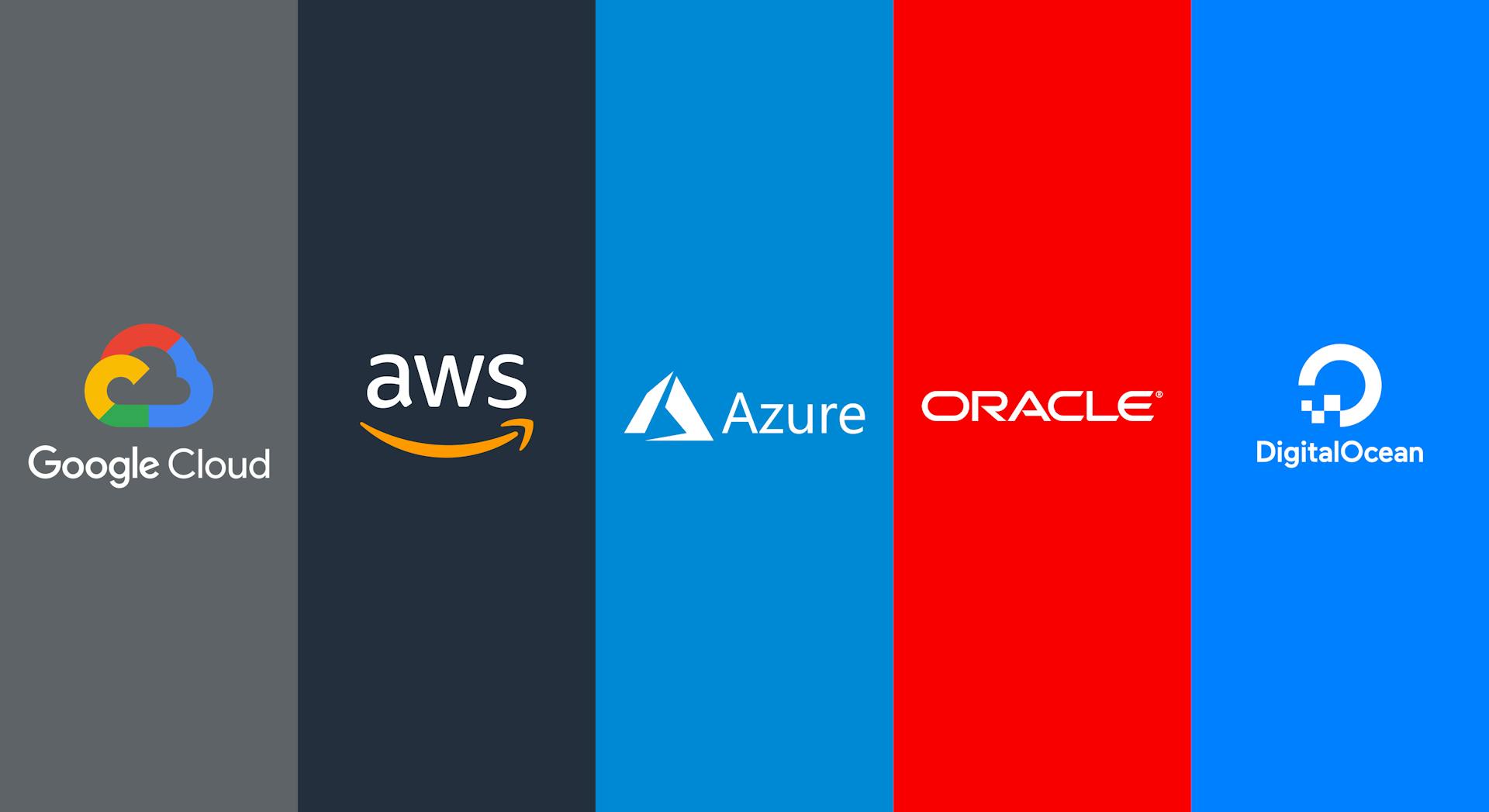Cloud computing is the backbone of modern tech. Whether you’re a startup deploying your first app or an enterprise managing critical systems, choosing the right cloud provider can make or break your project. Here’s my breakdown of the top 5 cloud providers in 2025 and what they each do best.

In 2025, Azure isn’t just competing with AWS—it’s setting the standard for cloud services, especially for enterprises. With unmatched integration into Microsoft’s ecosystem, Azure is the go-to for businesses that need a reliable, scalable platform for complex workloads.
Why Azure Stands Out:
• Enterprise Integration: Azure plays perfectly with Office 365, Active Directory, and Dynamics, making it an obvious choice for organizations already using Microsoft products.
• Hybrid Cloud Dominance: Azure Arc enables seamless management of hybrid and multi-cloud environments, making it the best choice for businesses that aren’t fully cloud-native yet.
• Developer-Friendly Tools: Azure AI and Azure DevOps simplify AI model deployment, CI/CD pipelines, and application delivery.
• Global Infrastructure: With data centers in virtually every major region, Azure ensures low latency and compliance with local regulations.
Best For:
• Enterprises running Windows-based workloads
• Hybrid and multi-cloud strategies
• AI, IoT, and machine learning projects
• Mission-critical business applications
Azure is the clear leader for enterprise-grade solutions in 2025, with a suite of tools that cater to the most demanding businesses.
AWS remains a powerhouse in 2025, offering the broadest range of services and the largest global footprint. It’s the Swiss Army knife of cloud providers, capable of handling almost any workload you throw at it.
Why AWS Stands Out:
• Massive Service Catalog: From EC2 compute instances to Lambda for serverless, AWS offers over 200 services.
• Global Presence: With the most extensive network of data centers, AWS ensures high availability and low latency.
• Scalability for All Sizes: AWS works just as well for startups as it does for enterprise-scale systems.
Best For:
• Building highly scalable applications
• AI, machine learning, and big data projects
• Serverless architectures
AWS’s depth and versatility make it a favorite for both enterprises and developers. The only downside? It can be complex to navigate if you’re not familiar with its ecosystem.
GCP has found its sweet spot as the cloud for data-driven businesses. Known for its leadership in AI and analytics, GCP is the best choice for companies looking to leverage their data for insights and innovation.
Why GCP Stands Out:
• Data Analytics Excellence: BigQuery continues to dominate as a high-performance data warehouse for querying massive datasets.
• AI and Machine Learning: With Vertex AI and TensorFlow, Google leads the way in making AI accessible and scalable.
• Kubernetes Expertise: Google’s history as the creator of Kubernetes gives it an edge in containerized workloads.
Best For:
• Big data analytics and data pipelines
• AI and machine learning workloads
• Kubernetes-based applications
If your work revolves around advanced data and AI, GCP is a strong contender.
Oracle Cloud has carved out its niche as a high-performance cloud provider for enterprises, especially those running database-heavy workloads. While it doesn’t have the market share of AWS or Azure, it excels in its targeted focus areas.
Why Oracle Cloud Stands Out:
• Database Powerhouse: Oracle’s Autonomous Database offers unparalleled performance for enterprise-grade database applications.
• Cost Efficiency: Oracle’s flexible pricing models and discounts for existing customers make it an attractive option for businesses already using Oracle solutions.
• Specialized Enterprise Tools: Oracle’s offerings are tailored to industries like finance, healthcare, and manufacturing, with pre-configured solutions for compliance and security.
Best For:
• Enterprise database workloads
• Industry-specific applications requiring strict compliance
• ERP and other business-critical software
Oracle Cloud isn’t as broad as some competitors, but its performance and reliability in enterprise applications make it a top pick for specialized use cases.
DigitalOcean remains a favorite for developers and small businesses in 2025. Its simplicity, predictable pricing, and focus on essentials make it ideal for teams that don’t need the complexity of AWS or Azure.
Why DigitalOcean Stands Out:
• Straightforward Pricing: No surprise bills—DigitalOcean’s pricing is clear and affordable.
• Developer-Friendly Interface: Its clean UI and simple workflows make managing servers and applications easy.
• Focused Offerings: DigitalOcean offers managed databases, Kubernetes, and virtual machines without the overwhelming options of larger providers.
Best For:
• Startups and small businesses
• Web and mobile applications
• Developers who want an easy-to-manage platform
DigitalOcean is perfect for those who need a reliable, no-fuss cloud solution at a reasonable price.
Final Thoughts
Here’s how the top 5 stack up:
• Azure: The best for enterprises and hybrid setups, with deep integration into Microsoft’s ecosystem.
• AWS: The most versatile and scalable cloud for any workload, though it can be complex.
• GCP: Ideal for data-heavy and AI-driven workloads, with best-in-class analytics tools.
• Oracle Cloud: The specialist for enterprise databases and industry-specific applications.
• DigitalOcean: Affordable and simple, perfect for developers and startups.
Each cloud provider excels in its niche, so the best choice depends on your specific needs. Azure leads the pack in 2025 for its enterprise focus and hybrid cloud capabilities, but the others offer strong competition in their respective areas.